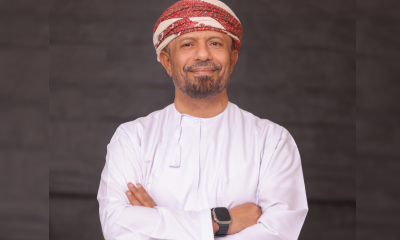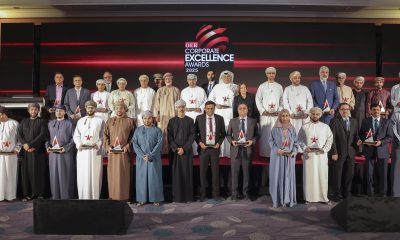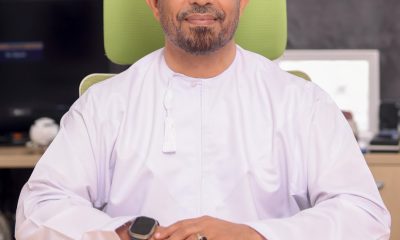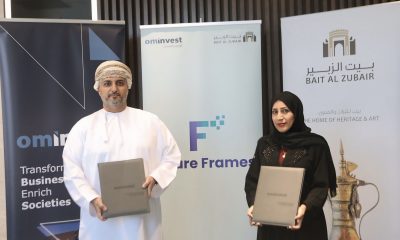Progress Oman
ENSURING JUSTICE FOR ALL
Since His Majesty Sultan Qaboos Bin Said assumed charge over four decades ago, the Sultanate has shifted to coping with the ongoing positive developments worldwide to an era of development across all levels of life.

HE Sheikh Abdulmalek bin Abdullah Al-Khalili,
Minister of Justice
Since His Majesty Sultan Qaboos Bin Said assumed charge over four decades ago, the Sultanate has shifted to coping with the ongoing positive developments worldwide to an era of development across all levels of life.
Building up Omani people and raising their living conditions to decent levels were the main objective in all economic and social transformation that were witnessed by the Sultanate since the beginning of Blessed Renaissance until now, through interim development plans. The Sultanate’s achievements during the Renaissance period is not only a product of HM, the Sultan’s ability to create a modernist government, but also because he formed a Government based on scientific principles. Any researcher can get to know principles, basics and objectives that has led to comprehensive development in all fields by looking at the results of government plans approved for specific stages of national development.
The Government’s development plans have achieved and are still achieving the goals of improving and raising the standard of living of the citizens in accordance with scientific methods. It also takes into account the harmony between Sultanate’s potential financial resources and overall requirements of the multi-sectoral development process. This can be traced back to the economic development strategy, which was adopted in 1974 and achieved substantial results, as Gross Domestic Product (GDP) recorded an average growth rate of 17 per cent and average per capita income rose to RO2491.
“Vision 2020,” a plan for Oman’s economic growth up to the year 2020 was adopted in 1995. Substantial achievements have been made at the economic level, the most important manifestations of which are the many projects currently undertaken in the Sultanate with the aim of diversifying sources of income and providing job opportunities for Omani youth.
At the level of the individual units of the state-run administrative apparatus, the Ministry of Justice is keeping pace with other concerned peers to undertake polices adopted by the Cabinet of the Sultanate. These polices seek to provide job opportunities for as many job seekers as possible, in the light of available financial resources and vacancies. Over the past couple of years, the ministry managed to employ more than 109 jobseekers in different departments of the ministry, including the Ministry’s Diwan, Department of Information Systems, Management and Investment of Orphans’ and Minors’ Funds. Some of them were employed in the reconciliation committees, and notaries public in various wilayats and governorates of the Sultanate.
With regard to the government’s relentless efforts to shift to the electronic mode or the so-called e-government transformation, the government’s plan in this regard kicked off in October 2012, with a focus on achieving added value for both citizens and expatriates, through providing facilitated services that lead to finalising transactions in a way that saves people’s time. These services include all units of the state run administrative apparatus. This is a promising field that may provide many job opportunities, especially as the transformation project is based on six stages, the first four of which target existence, interaction, and transformation. They will hopefully be finalised by end of this year. After this, the last two phases will kick off under the two goals of Participation and international interaction.
-

 News2 months ago
News2 months agoKitchenomiKs Secures Investment of US$3.2M Led by Jasoor Ventures
-

 Real Estate2 months ago
Real Estate2 months agoAl Mouj Muscat Unveils Azura Beach Residences Phase 2: A New Chapter in Waterfront Living
-

 Leaders Speak1 month ago
Leaders Speak1 month agoDhofar International Development and Investment Company: Driving Sustainable Growth and Strategic Synergies in Oman’s Investment Landscape
-

 Events1 month ago
Events1 month agoOER Corporate Excellence Awards 2025 Honours Entities and Innovations in Oman
-

 Economy1 month ago
Economy1 month agoMaal Card: What Oman’s New National Payment Card Means for Everyday Users
-

 OER Magazines2 months ago
OER Magazines2 months agoOER, October 25
-

 Arts and Culture2 months ago
Arts and Culture2 months agoOminvest and Bait Al Zubair Launch “Future Frames” to Empower Youth through Art and AI
-

 Entertainment2 months ago
Entertainment2 months agoWhere Heritage Meets Haute Couture: Al Sadaa Haute Couture Transforms the Sultanate’s Fashion Scene































You must be logged in to post a comment Login